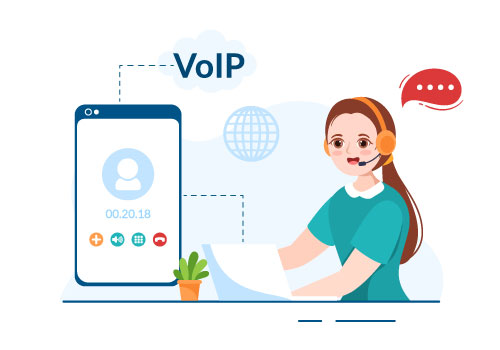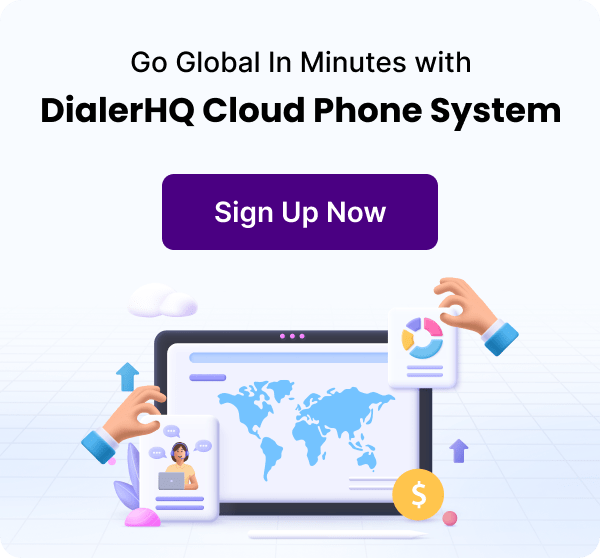Senior Writer: Paras Kela
VoIP (Voice over Internet Protocol) has revolutionized how we communicate, enabling voice calls to be transmitted over the internet instead of traditional telephone networks.
This technology offers numerous advantages, including cost savings, flexibility, and enhanced features. With the increasing popularity of VoIP, the need to record VoIP calls has also emerged, whether for legal compliance, quality assurance, or personal documentation purposes. VoIP reduces startup costs by a whopping 90%, resulting in more customer engagement.
We will review some popular VoIP call recording software, examining their features, pricing, and benefits. Furthermore, we will address common questions, such as how to record VoIP calls on Android and iPhone devices and the possibility of tracing VoIP calls.
What is VoIP Call Recording?
VoIP (Voice over Internet Protocol) call recording is capturing and storing audio data from phone conversations conducted over the internet using an intuitive VoIP technology. VoIP allows voice communication to be transmitted over IP networks, such as the Internet, instead of traditional telephone lines.
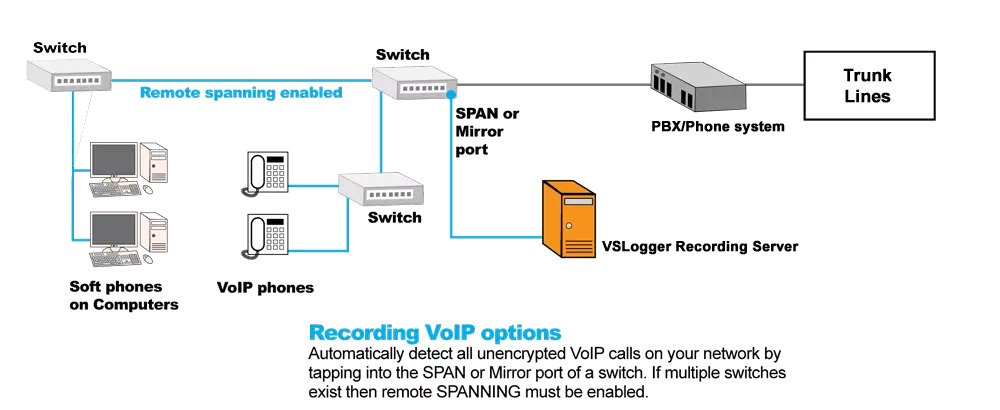
VoIP call recording enables you to record and store voice conversations for many purposes, such as quality assurance, compliance requirements, training, dispute resolution, or simply for reference. The recorded calls can be stored as digital audio files, which can be reviewed, shared, and archived as needed.
How Does VoIP Call Recording Work?
VoIP (Voice over Internet Protocol) call recording captures and saves audio data from phone conversations online using VoIP technology. When a VoIP call is initiated or received, the audio stream is captured and stored in a compatible format for future reference.
For recording VoIP phone calls, specialized software or hardware devices are used. These solutions can be integrated with VoIP systems or installed separately as standalone recording systems. They typically work with the VoIP infrastructure to intercept and record the audio packets transmitted during the call.

"VoIP call recording can take your customer support process to the next level. Listen to your users, take action, and don’t let the same mistake repeat by recording VoIP calls and training your team. Improve the team’s overall productivity with advanced call recording for VoIP calls."
When a call is in progress, the VoIP call recording system monitors the network traffic and identifies the relevant audio packets associated with the conversation. It captures these packets, decodes the audio data, and converts it into a digital format like WAV or MP3. The system then saves the recorded audio files onto a storage device, such as a hard drive or a cloud-based storage service.
The recorded calls can be accessed and managed through a user interface provided by the VoIP call recording system. Users can search and retrieve specific recordings based on various criteria, such as date, time, caller ID, or keywords. Some systems also offer additional features like annotation, transcription, and integration with other communication platforms.
Different Types of VoIP Call Recording
There are different types of VoIP call recording methods available to suit various business needs. You can select the one that helps you connect better with your prospects and customers. Let’s explore the three main types:
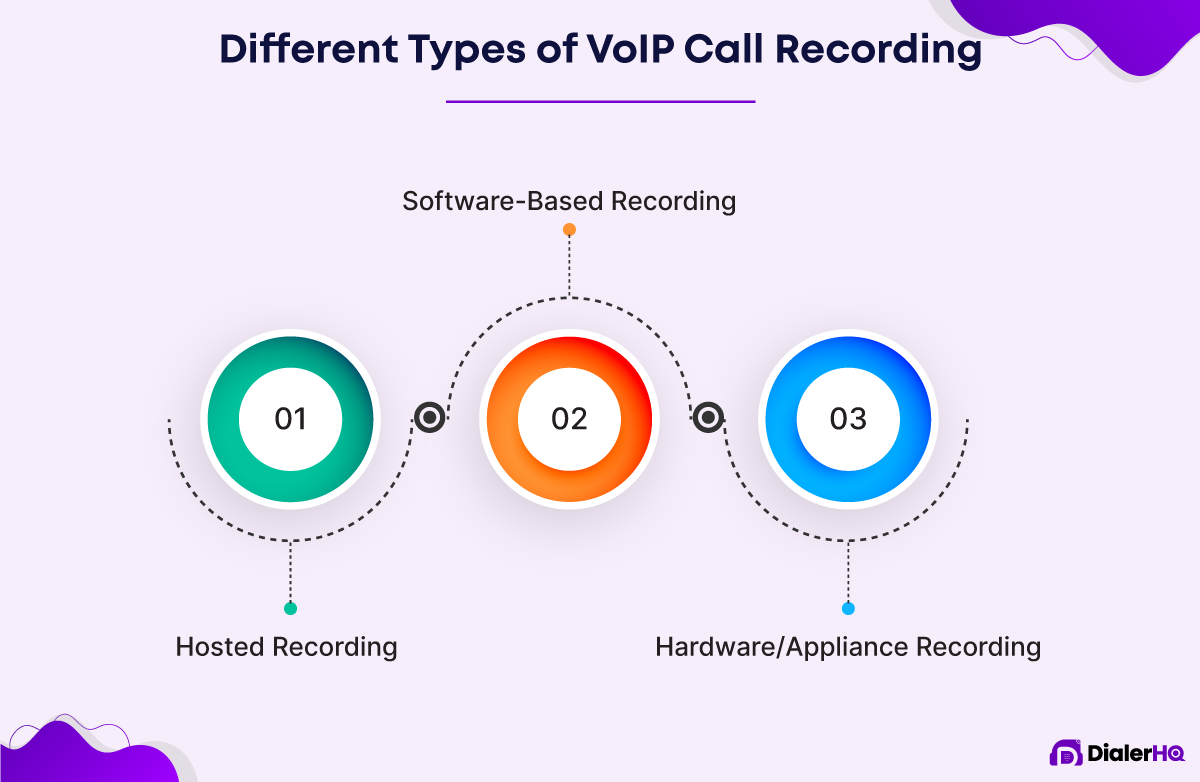
1. Hosted Recording
Hosted recording, or cloud-based recording, involves using a third-party service provider to store and manage recorded calls. With this approach, businesses don’t need to invest in their recording infrastructure.
Instead, the service provider in the cloud hosts and maintains the call recording system. Calls are captured and securely stored on the provider’s servers, and users can access the recorded calls through a web-based interface. Hosted recording offers scalability, flexibility, and ease of implementation, as businesses can simply subscribe to the service without needing additional hardware or software.
2. Software-Based Recording
Software-based recording involves installing dedicated call recording software on existing servers or computers within the organization’s network. This software integrates with the VoIP system and captures audio streams during calls. The recorded calls are saved locally or on network storage devices.
Software-based recording offers flexibility and customization options, as businesses can choose and configure the software according to their specific requirements. It allows for call tagging, annotation, and advanced search capabilities. However, it requires IT resources to install, configure, and maintain the software, and the capacity of the servers or computers may limit scalability.
3. Hardware/Appliance Recording
Hardware-based or appliance recording involves using dedicated recording devices or appliances. These devices are typically installed between the VoIP system and the network infrastructure.
They capture and record audio packets in real time, ensuring high-quality recordings. The recorded calls are stored on internal hard drives or external storage devices. Hardware recording solutions often offer advanced features like encryption, redundancy, and high scalability.
They are suitable for organizations with high call volumes and stringent compliance requirements. However, hardware-based recording solutions may require additional upfront investment to purchase and maintain the recording devices.
Comparison of Top VOIP Call Recording Software
| Software Name | Key Features | Pricing | Free Trial |
|---|---|---|---|
| DialerHQ |
|
| 10 Days |
| CallHippo |
|
| 10 Days |
| Aircall |
|
| 7 Days |
| Nextiva |
|
| NA |
| Callcap |
|
| NA |
| RingCentral |
|
| 14 Days |
| Versadial |
|
| NA |
| MightyCall |
|
| 7 Days |
| Ooma |
|
| 30 Days |
| 8x8 |
|
| 30 Days |
10 Best VOIP Call Recording Software
If you’re looking to get the best VoIP recording software, then your search ends here! We have compiled a list of the top 10 VoIP call recording software for businesses.
1. DialerHQ

DialerHQ is a cloud-based call center software that offers comprehensive call recording capabilities. It is designed to enhance call management, agent productivity, and customer experience. With its intuitive interface and robust features, DialerHQ streamlines call recording and provide actionable insights for businesses of all sizes.
Features
- Automatic call recording (ACD)
- Real-time monitoring
- Call analytics
- Secure storage
- Call forwarding
- Integration options
Pros and Cons
- Automatic call recording for complete customer interaction tracking.
- Cloud storage for secure and easily accessible recorded calls.
- Customizable recording settings based on specific preferences.
- Real-time monitoring for immediate quality control.
- Integration capabilities with various business applications.
- Pricing plans may be higher compared to some competitors.
- Some advanced features and analytics may require higher-tier plans.
- The range of customization options for call recording rules may be limited.
Pricing
As an enterprise-specific solution, DialerHQ caters exclusively to large teams or organizations. Connect with the DialerHQ sales team at [email protected] for personalized quotes, or start a free trial for first-hand experience.
2. CallHippo
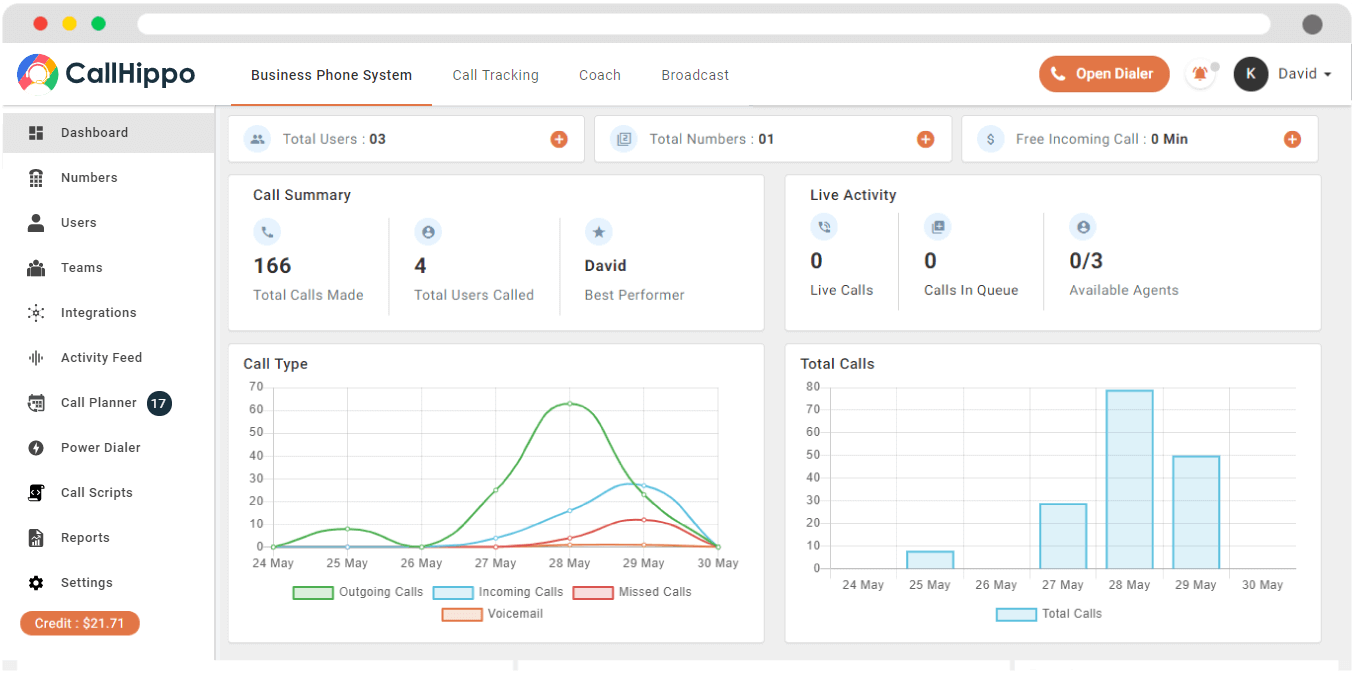
CallHippo is a virtual business phone system and call center software that includes call recording phone calls functionality. It is designed to streamline communication and empower businesses with essential call management features. This VoIP call recording software is ideal for small and large-sized businesses that want to store data of customer interactions.
Features
- Customizable call recordings
- Call analytics
- International calling
- International outbound calls
- Record calls automatically
- Speech analytics
- Call forwarding
- Power dialer
- Interactive voice response (IVR)
Pros and Cons
- Affordable pricing plans are suitable for small businesses.
- Automatic call recording for thorough monitoring.
- Cloud storage for easy access and retrieval of recorded calls.
- Integration with popular CRMs for improved workflow.
- Compliance with regulatory requirements for data security.
- Limited advanced features compared to enterprise-level solutions.
- May lack certain customization options for call recording rules.
- Additional features and functionalities may require higher-tier plans.
Pricing
- Basic – $0
- Bronze – $16
- Silver – $24
- Platinum – $40
3. Aircall
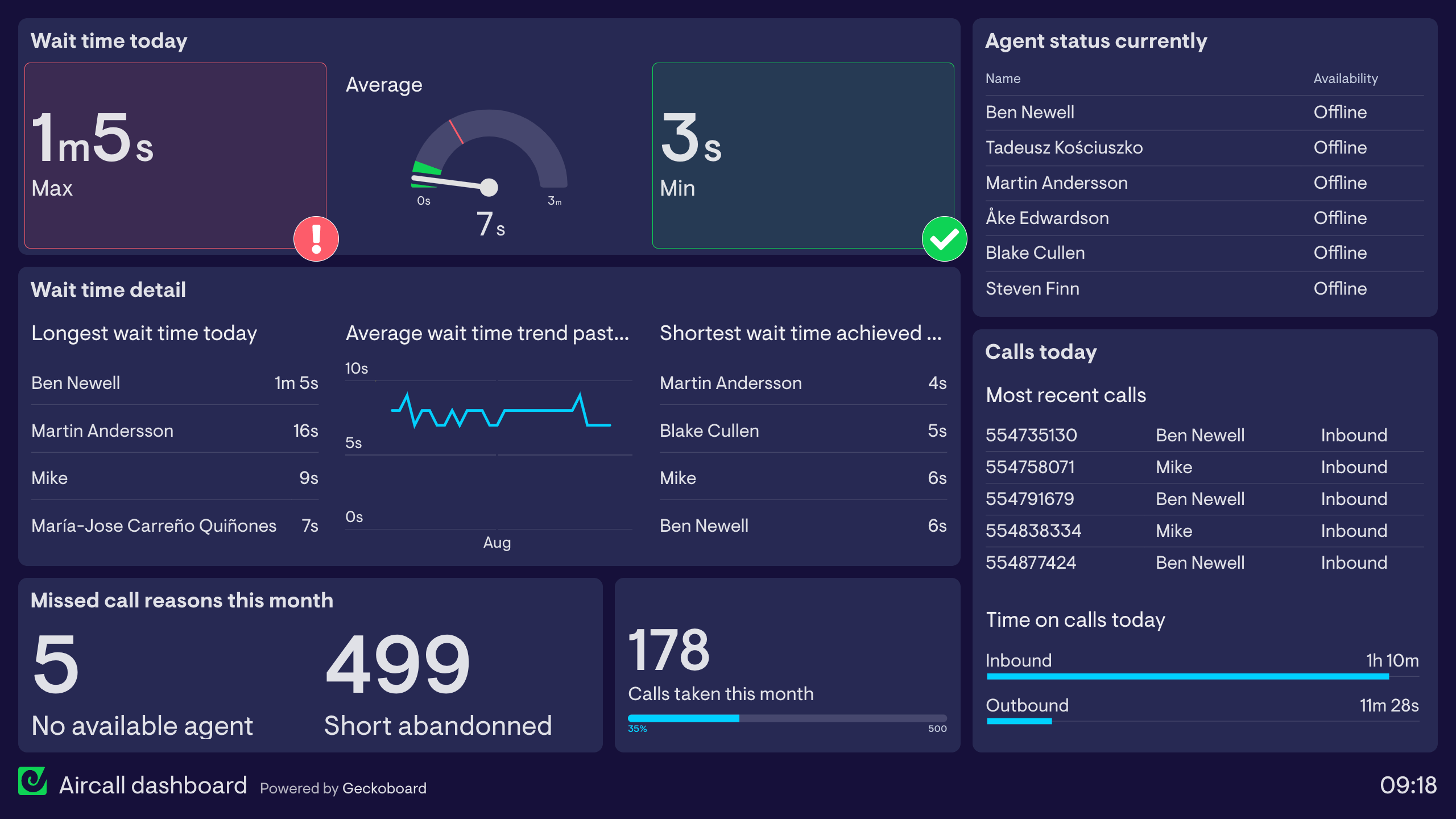
Aircall is one of the best VoIP phone systems developed for modern businesses. Along with its core telephony features, Aircall offers call recording capabilities to help organizations monitor and improve customer interactions. This platform is one of growing companies’ most preferred call recording solutions.
Features
- Automatic and on-demand call recording
- Playback and cloud storage
- Call analytics
- Forwarding incoming calls
- Team collaboration
- Various integration options
Pros and Cons
- User-friendly interface with easy setup and management.
- On-demand and automatic call recording options.
- Cloud storage for secure and convenient access to recorded calls.
- Team collaboration features for joint call analysis and training.
- Integration capabilities with various CRMs and business tools.
- Pricing plans may be relatively higher for businesses with larger teams.
- Advanced reporting and analytics features may be limited.
- Certain customization options for call recording rules may be lacking.
Pricing
- Essentials – $30 per user.
- Professional – $50 per user.
- Custom – Call for more details.
4. Nextiva

Nextiva is a robust business communication platform that provides a wide range of features, including call recording. It offers a comprehensive suite of communication tools to streamline business operations and enhance customer engagement.
Features
- Call recording
- Unlimited calling
- Call park
- Conference bridge
- Call queuing
Pros and Cons
- Comprehensive call recording features for enhanced monitoring.
- Real-time monitoring for immediate quality control.
- Advanced call analytics and reporting for performance tracking.
- Integration options with popular CRMs and business tools.
- Compliance with industry regulations for data security.
- Pricing plans may be higher compared to some competitors.
- Limited customization options for call recording settings.
- Additional advanced features may require higher-tier plans.
- Customer support may have room for improvement.
Pricing
- Essential – $18.95 per user
- Professional – $22.95 per user
- Enterprise – $32.95 per user
5. Callcap
Callcap is a call tracking and monitoring solution that includes robust call recording capabilities. It focuses on helping businesses track and analyze their phone calls to optimize marketing efforts and improve customer interactions.
Features
- Call recording
- Call routing
- Call monitoring
- Performance management
- Call reports and analytics
- Lead qualification
- Conversion tracking
Pros and Cons
- Automatic call recording for a comprehensive record of customer interactions.
- Secure cloud storage for easy access and retrieval of recorded calls.
- Customizable call recording rules based on specific criteria.
- Speech analytics for sentiment analysis and compliance monitoring.
- Integration with popular CRMs and marketing platforms for streamlined data management.
- Limited advanced features compared to some enterprise-level solutions.
- Pricing plans may be higher for businesses with larger call volumes.
- Certain customization options for call recording rules may be limited.
Pricing
- Custom pricing.
6. RingCentral

RingCentral is a cloud-based communication platform that includes call recording features. It offers a unified solution for voice, video, messaging, and collaboration, with call recording capabilities to enhance communication and productivity.
Features
- Calling and monitoring
- Call recording
- Call forwarding
- Cloud PBX
- Multi-level IVR
- Number porting
Pros and Cons
- On-demand and automatic call recording options for flexibility.
- Cloud storage for secure and convenient access to recorded calls.
- Customizable call recording settings based on specific preferences.
- Advanced search and filtering options for efficient call retrieval.
- Integration capabilities with various business applications.
- Pricing plans may be higher compared to some competitors.
- Advanced reporting and analytics features may require higher-tier plans.
- Some users may find the interface slightly complex initially.
Pricing
- $20 to $35 per user per month.
7. Versadial
Versadial is an advanced call recording solution developed specifically for businesses seeking comprehensive call monitoring and quality management. It offers a range of features to capture, store, and analyze phone conversations for various purposes.
Features
- Flexible call recording
- Customizable recording rules
- Secure storage
- Quality assurance tools
- Compliance and security
Pros and Cons
- Call recording flexibility with options for on-demand and automatic recording.
- Secure storage and easy retrieval of recorded calls for review and analysis.
- Customizable recording rules based on specific criteria.
- Advanced search and playback features for efficient call management.
- Compliance with regulatory requirements and data privacy.
- Pricing details may not be readily available, requiring direct contact with the sales team.
- Some users may find the user interface less intuitive compared to other solutions.
Pricing
- Provides custom pricing.
8. MightyCall
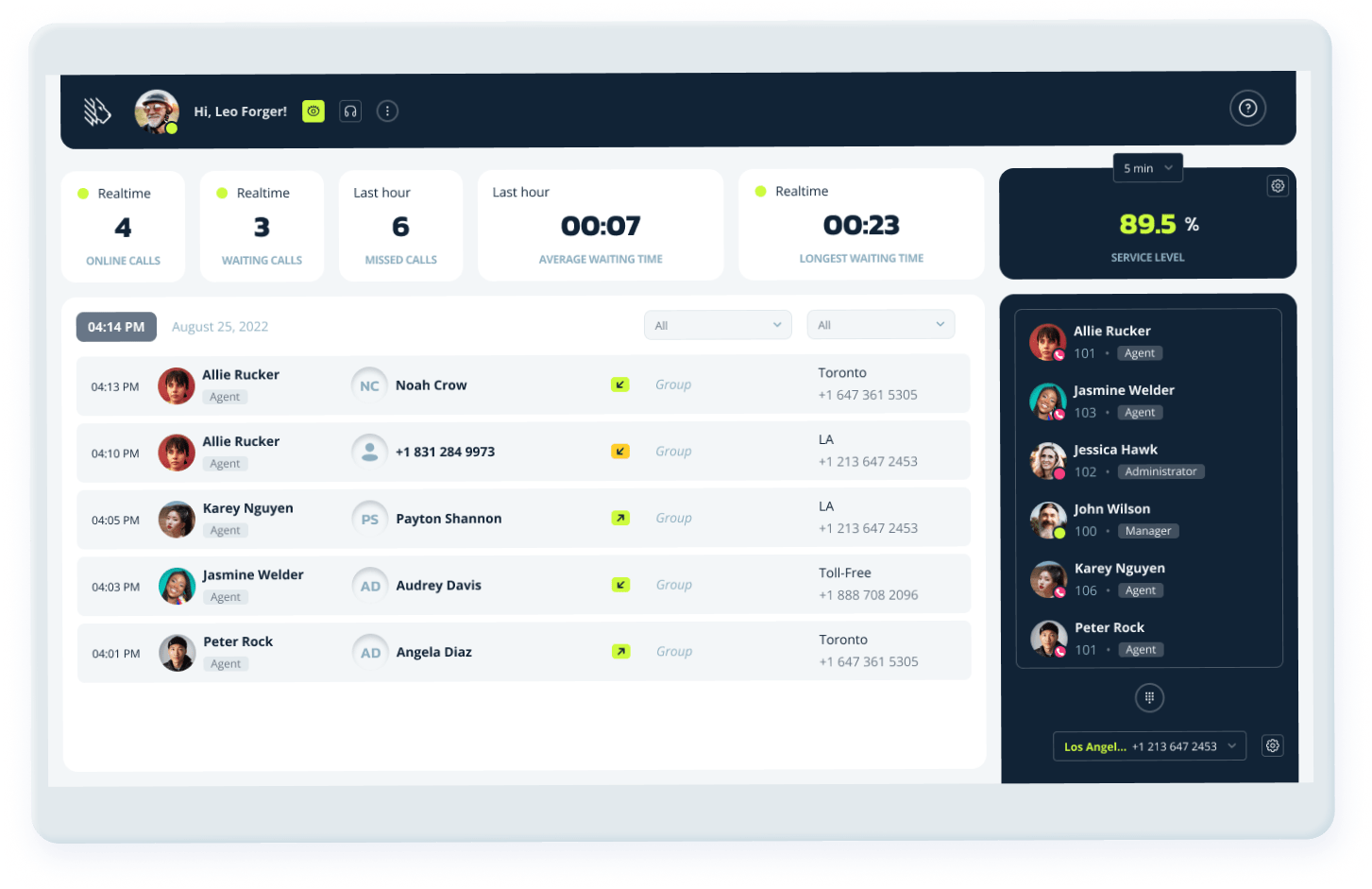
MightyCall is a virtual phone system designed for small businesses and entrepreneurs. While primarily focused on call management and customer communication, it also offers call recording capabilities to enhance business operations.
Features
- On-demand call recording
- Call analytics
- Call tracking
- Reliable call storage
- Integration options
Pros and Cons
- On-demand call recording for capturing important details during conversations.
- Secure cloud storage for easy access and playback of recorded calls.
- Customizable recording options based on specific needs.
- Integration with popular CRM systems for streamlined data synchronization.
- Compliance with data privacy regulations.
- Advanced features and analytics may be limited compared to some competitors.
- Pricing plans may be higher for businesses with larger call volumes.
- Some users may prefer more extensive customization options.
Pricing
7-day free trial available.
- Business plan – $15 per user per month.
- Enterprise plan – $150 per month, flat fee.
9. Ooma
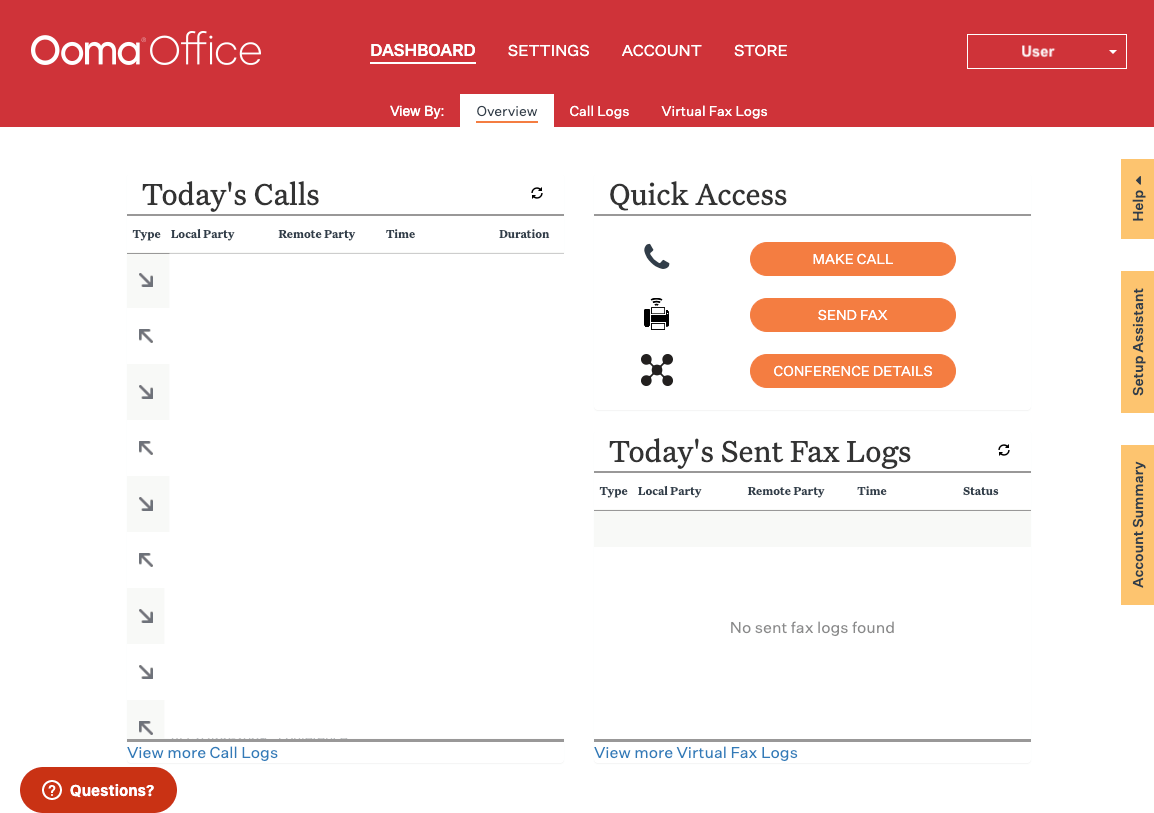
Ooma is a business communication platform that provides VoIP services, including call recording features. It offers a comprehensive suite of communication tools to streamline business communication and enhance customer engagement.
Features
- International calling
- Smart call recording
- Call analytics
- Video conferencing
- App integration options
Pros and Cons
- Automatic call recording for comprehensive record keeping.
- Cloud storage for secure and convenient access to recorded calls.
- Customizable call recording settings based on specific requirements.
- Call analytics and reporting for tracking call metrics and customer interactions.
- Integration capabilities with popular CRMs and business applications.
- Pricing details may not be readily available and may vary based on specific needs.
- Some users may find the interface slightly complex initially.
- Advanced features may be limited compared to more robust enterprise-level solutions.
Pricing
- Standard – $19.99 per user per month.
- Enhanced – $27.99 per user per month.
- Call center – $49.99 per user per month.
10. 8×8
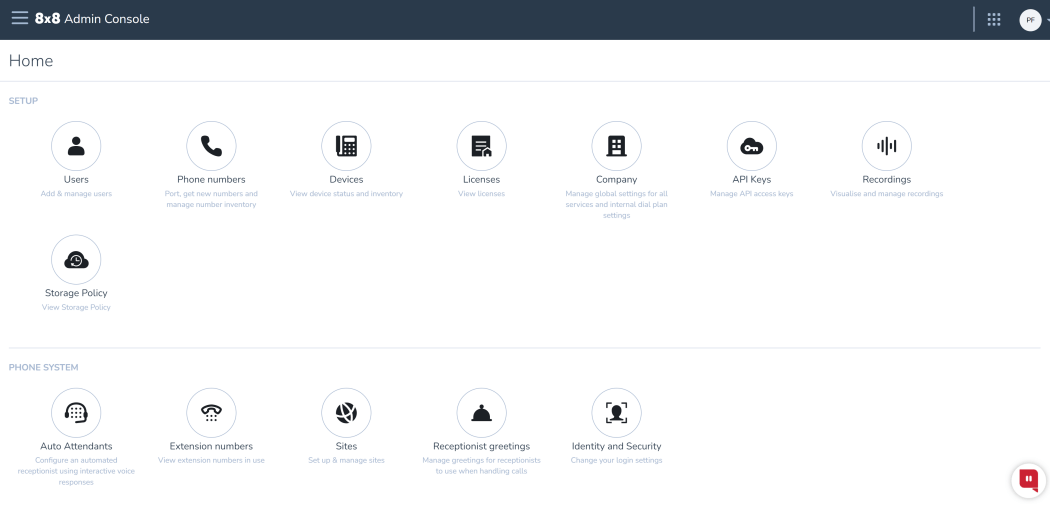
8×8 is a leading cloud-based communication and collaboration platform that offers call recording features as part of its comprehensive suite of communication tools. It provides businesses with reliable and scalable solutions for effective communication and collaboration.
Features
- Automatic call routing
- Real-time monitoring
- Advanced call analytics
- Integrations options
- Video conferencing
- Call recording
Pros and Cons
- Automatic call recording for complete customer interaction tracking.
- Cloud storage for secure and easily accessible recorded calls.
- Customizable recording settings based on specific preferences.
- Real-time monitoring for immediate quality control.
- Integration capabilities with various business applications.
- Pricing plans may be higher compared to some competitors.
- Some advanced features and analytics may require higher-tier plans.
- The range of customization options for call recording rules may be limited.
Pricing
- X2 – $24 per user per month.
- X4 – $44 per user per month.
Conclusion
In conclusion, VoIP call recording software offers businesses a valuable tool for enhancing communication, monitoring customer interactions, and improving overall performance. Whether it’s for compliance purposes, quality assurance, or training, the benefits of call recording are significant. So, make the right choice and get started with the best VoIP call recording platform!
FAQs
To record a VoIP call on an Android phone, you can use call recording apps available on the Google Play Store. These apps allow you to record both incoming and outgoing calls on your device. Some popular call recording apps for Android include ACR (Another Call Recorder), Cube Call Recorder ACR, and Call Recorder - ACR. Simply download and install the app of your choice, follow the instructions, and enable call recording when making or receiving VoIP calls.
Recording VoIP calls on an iPhone is a bit more complicated due to restrictions imposed by Apple. The built-in call recording feature is not available on iPhones. However, you can use third-party apps like TapeACall, Call Recorder - IntCall, or Rev Call Recorder, which utilize a three-way calling method to record VoIP calls.
These apps typically require you to initiate the call within the app itself, which then connects your call to a recording line. It's important to check the app's compatibility with your specific VoIP service before using it.
Regarding tracing VoIP calls, it is possible to trace VoIP calls, but it can be challenging due to the nature of VoIP technology. VoIP calls often rely on dynamic IP addresses and encryption, which can make tracing difficult.
However, in cases where legal authorities are involved and proper protocols are followed, it is possible to trace VoIP calls through cooperation between service providers and law enforcement agencies. It's important to note that tracing VoIP calls generally require specialized expertise and legal procedures.

Paras Kela is an accomplished IT professional with 7+ years of industry experience, including 4+ years as a dedicated content writer. His expertise lies in crafting informative blogs on VoIP and cloud telephony, among other technical subjects. Outside his professional pursuits, he cherishes quality time with loved ones, indulges in watching documentaries, and finds solace in gardening.
Updated : March 8, 2024

Subscribe to our newsletter & never miss our latest news and promotions.
